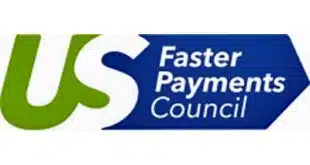Biometrics payment technology provider Pay By Touch reaped a bushel of favorable publicity last week when it launched its fingerprint-based system at 10 Chicago-area Shell stations in the company's first petroleum-sector rollout. What went unmentioned, however, was that Pay By Touch's parent company was entangled in court fights on the East and West coasts that include an involuntary bankruptcy petition filed against the company by three employees, a fight between institutional investors and embattled founder and chairman John P. Rogers over control of the company, and Rogers's own filing for bankruptcy. Further roiling the boardroom battle, an investment firm claims the employees' bankruptcy petition is a move by Rogers' supporters to help him keep control of the 5-year-old San Francisco-based company. While the legal disputes raise questions about Pay By Touch's financial viability, spokesperson Shannon Riordan told Digital Transactions News late Monday that, “we're business as usual.” Riordan says she can't comment in detail about the allegations in the court filings, but she insists the 700-employee, privately held company is moving forward. “We at Pay by Touch are completely confident that this is a temporary situation … that this soon will be behind us,” she says. Riordan insists a recent trade-press report that Pay By Touch might sell assets and exit point-of-sale biometrics is “not true.” Riordan also notes that Pay By Touch is not in bankruptcy despite the petition by three employees claiming they're owed about $45,000 in back wages and other compensation. “We have 20 days to figure out how we are going to respond to this bankruptcy petition,” she says. But when asked if the company is behind on meeting payroll, she says, “I'm not allowed to talk about that.” A lawyer for the employees did not return a Digital Transactions News call. What is true is that the leadership of the company is in dispute, and that the legal bills will be piling up fast thanks to actions in the U.S. Bankruptcy Court in Los Angeles, where the employees filed suit, and in Delaware Chancery Court in Wilmington, Del. Pay By Touch's parent company, Solidus Networks Inc., is incorporated in Delaware. Riordan would not name Pay By Touch's current leadership other than to say that Rogers is the acting chief executive officer and executive chairman. Rogers founded Solidus in 2002 and has raised $300 million in debt and equity capital since then. But the company has accumulated “substantial losses since inception and has not achieved significant revenues to date,” according to a filing from Plainfield Special Situations Funds Master Fund Limited. That fund and its affiliate, Plainfield West Investments LLC, both run by Stamford, Conn.-based investment firm Plainfield Asset Management LLC, are major investors in Solidus debt and preferred stock, including $50 million in promissory notes. Solidus has $200 million in secured debt, according to Plainfield. While Rogers holds 64% of the company's voting stock, Plainfield gained the right to name board members under certain conditions through a February financing agreement. Plainfield exercised that power Oct. 17 after determining Solidus was in default of its financing covenants and that Rogers had taken “erratic action” in the weeks before while apparently trying to raise money as cash-flow problems mounted. According to Plainfield, the actions included several “disturbing e-mails” related to “manic fundraising efforts,” e-mails the filing says included “depressing threats” against investors. The alleged actions culminated with the sudden firing of chief operating officer Eula Adams and independent director Arthur Petrie. The firings reportedly prompted chief executive John Morris to resign. Plainfield's reconstituted board of directors let Rogers stay on as a director, but brought back Morris, Adams, and Petrie and included Tim Robinson, the former chief executive of BioPay LLC, a rival Pay By Touch acquired in January 2006. Rogers and a lawyer for Solidus resisted Plainfield's action, according to filings from Plainfield and two other institutional investors that hold $92 million in Solidus debt. Rogers reportedly named a five-member board that includes himself, Petrie, and three others. Plainfield took the matter to the Delaware court Oct. 19, and a court official on Oct. 23 issued a status-quo order limiting Solidus's activities to normal day-to-day business as a first step in resolving the issue. That Delaware order was supposed to have prevented Solidus from declaring bankruptcy. But Plainfield is suggesting in a Friday filing that Rogers is trying to get around that restriction, claiming that “most if not all” of the employees who filed the petition for involuntary bankruptcy Oct. 31 have close ties to him, one being his brother-in-law. The filing does not name that relative, and a Plainfield lawyer did not return a Digital Transactions News call. It was shortly after the employees filed the involuntary petition that Rogers filed his personal bankruptcy petition, according to Plainfield. Information about that filing was not immediately available. The Chancery Court had a scheduling hearing set for Nov. 1 to set a date for expedited trial in the board dispute, but the employees' bankruptcy filing brought the Delaware court proceedings to a temporary halt. Now the court action is shifting to the federal bankruptcy court in Los Angeles. That's where a hearing is set for Wednesday on Plainfield's emergency petition, supported by other institutional investors, to lift the restrictions the involuntary bankruptcy petition is imposing on the Delaware court's ability to resolve the board dispute. Some insiders have no doubts about the ultimate outcome. “Plainfield will be able to control the board,” says Robinson. “It's just a question of how long it will take and how much turmoil the company will have to go through.” At the same time, he has no qualms about the company's long-term prospects. “Pay By Touch has tremendous opportunity for greatness,” he says. “It's a fabulous business opportunity.”
Check Also
Guidelines Emerge for Adding Send Capabilities for Instant Payments
The U.S Faster Payments Council has released fresh guidelines to help financial institutions add send …





